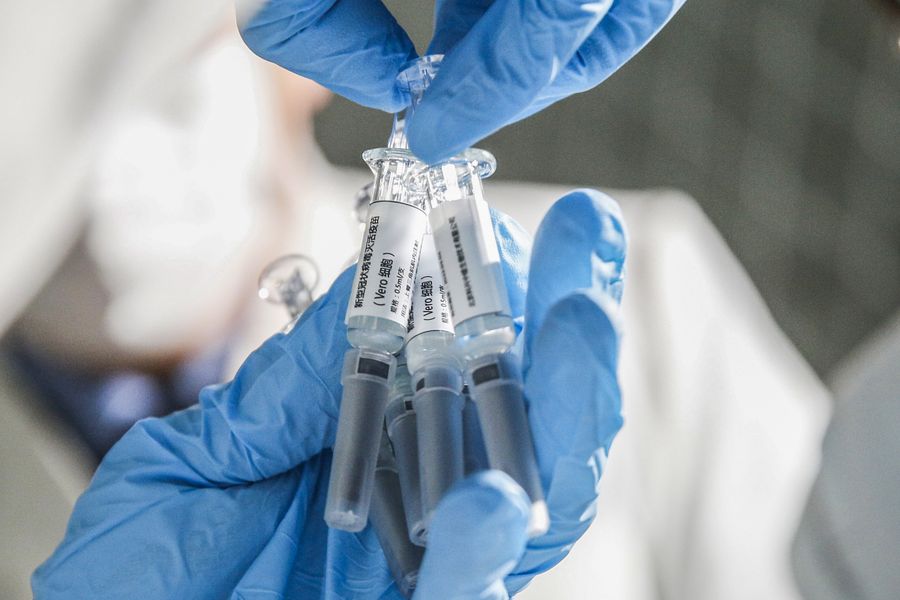Chinese researchers publish inactivated COVID-19 vaccine's effect on animals
China's inactivated COVID-19 vaccine has shown potent protection against SARS-CoV-2, which causes the disease, in animal experiments, according to a study published in the journal Cell.
China's inactivated COVID-19 vaccine has shown potent protection against SARS-CoV-2, which causes the disease, in animal experiments, according to a study published in the journal Cell.

A staff member displays samples of the COVID-19 inactivated vaccine at Sinovac Biotech Ltd., in Beijing, March 16, 2020. [Photo/Xinhua]
Inactivated vaccines use the killed version of the germ that causes a disease.
Research on the vaccine candidate BBIBP-CorV was jointly conducted by the Beijing Institute of Biological Products under the China National Biotec Group, the Chinese Center for Disease Control and Prevention, the Chinese Academy of Medical Sciences as well as other institutions.
Researchers reported the pilot-scale production of the vaccine candidate which induces high levels of neutralizing antibody concentrations in mice, rats, guinea pigs, rabbits, and nonhuman primates including cynomolgus monkeys and rhesus macaques to provide protection against SARS-CoV-2.
A neutralizing antibody can defend a cell from a pathogen or infectious particle by obliterating any biological effect.
Two-dose immunizations using two micrograms of each dose provided strong protection against a SARS-CoV-2 intratracheal challenge in rhesus macaques. No antibody-dependent enhancement of infection was detected in the experiment.
In addition, the vaccine exhibits high productivity and good genetic stability for manufacturing, which supports its further evaluation in a clinical trial, according to the research.
The inactivated vaccine candidate was approved for clinical trials in late April, according to the China National Biotec Group.
The Beijing Institute of Biological Products has increased its manufacturing capacity by building a large production unit in Beijing which meets high bio-safety protection requirements. The unit will be able to produce 100 to 120 million inactivated COVID-19 vaccines per year once mass production begins, which will help ensure adequate supply.
China is currently developing COVID-19 vaccines in five categories -- inactivated vaccines, recombinant protein vaccines, live attenuated influenza vaccines, adenovirus vaccines, and nucleic acid-based vaccines. To date, four inactivated vaccines and one adenovirus vaccine have been approved for clinical trials.
Minister of Science and Technology Wang Zhigang said at a press conference on Sunday that China will make its COVID-19 vaccine "a global public good" when it is ready for application.

